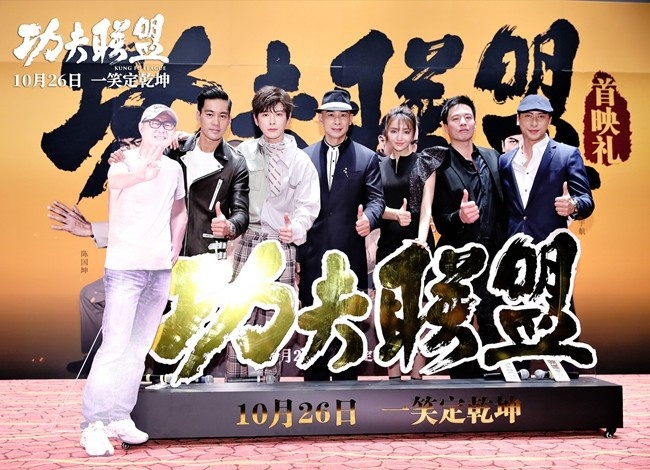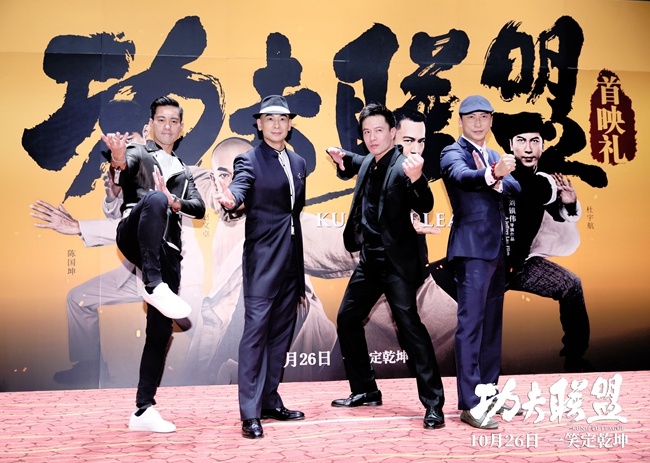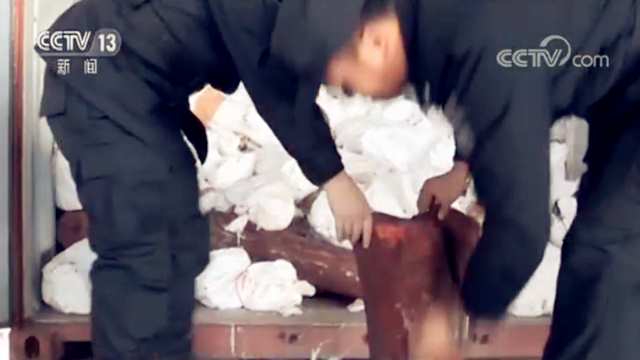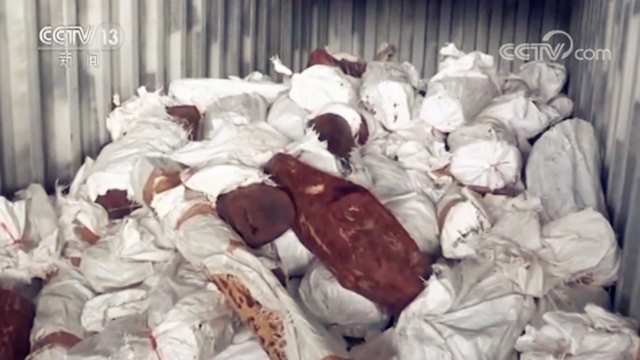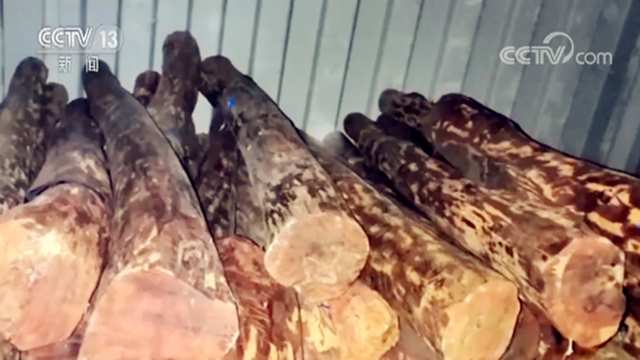Sing songs for historical portraits, the times and the people.
Original title: Singing for the Historical Portrait, Singing for the Times and Biography for the People — — Comment on the Film and Television Works Winning the Sixteenth "Five One Projects" Award for Spiritual Civilization Construction
Recently, the Propaganda Department of the CPC Central Committee announced the winners of the 16th Five-One Project for Spiritual Civilization Construction. Nine film and television works, such as My People,My Country, TV series Crossing the Yalu River and the documentary Out of Poverty, won special awards, and 30 film and television works, such as The Islander, TV series The Awakeing Age and the documentary for Peace, won excellent works awards. These works are historical portraits, songs for the times, and biographies for the people. They tell the story of China in an upright and innovative literary form, showing the new atmosphere of film and television art in the new era from "plateau" to "peak".
Portrait of history is an important mission of film and television art. Among the winning works of the "Five-One Project" award, a series of movies and TV works with major revolutionary historical themes accurately selected topics around important time nodes such as the centenary of the founding of the Communist Party of China (CPC), the 70th anniversary of the founding of New China, and the 70th anniversary of Chinese people’s Volunteer Army’s overseas war to resist US aggression and aid Korea, vividly showing the struggle course of the Chinese nation with a high degree of historical consciousness and cultural self-confidence. Looking back at the birth of the Communist Party of China (CPC), TV series The Awakeing Age highlights the powerful belief power of the revolutionary ancestors who struggled for national salvation and survival and for the great rejuvenation of the nation. The drama pays attention to the combination of historical truth and artistic truth, and its expression meets the aesthetic needs of young people in the new era, thus making the characters in the film resonate with the young strugglers who are engaged in the great practice of Chinese modernization today. During the broadcast, related topics such as "Our happy life today is the sequel of The Awakeing Age" made a hot search in Weibo, causing extensive discussions, profoundly embodying the Communist Party of China (CPC) people’s unswerving initial mission and the century-old inheritance of spiritual pedigree, and made a useful exploration for the youthful expression of major revolutionary historical themes. The TV series "Top Secret Mission" focuses on the secret traffic lines established by our party in the 1930s to break the military blockade of the Kuomintang and support the Central Soviet Area. The whole drama focuses on shaping a group of heroic traffic policemen with lofty ideals and beliefs on the hidden front through exquisite narrative structure and delicate living plots.It fills the screen blank of the history of "Central Red Traffic Line". The TV series Armageddon takes the three battles of Liaoshen, Huaihai and Pingjin as the main line, and deeply explores the political, historical and cultural reasons behind the war, providing vivid screen teaching materials for the whole party and the people of the whole country to learn the party history, national history and military history. The TV series Diplomatic Storm systematically shows the diplomatic history of nearly 30 years after the birth of New China. The drama adheres to the creative principle of "big events are not empty, small events are not limited", and tells diplomatic events with fictional characters in cooperation with historical figures, which aesthetically and artistically reflects the elegance and wisdom of proletarian revolutionaries and diplomats in the eventful years, and also provides us with the strength of national self-confidence and self-improvement in today’s complex international environment in the era of "anti-globalization". The large-scale documentary feature film "We Walk on the Road" reflects the great achievements of China’s politics, economy, culture, ecology, national defense and diplomacy in the 70 years since the founding of New China with a series of typical examples of major historical nodes, and comprehensively shows the road of revival of China people led by the Communist Party of China (CPC) from standing up, becoming rich and becoming strong. The movie Sniper by The Battle at Lake Changjin, the TV series Crossing the Yalu River and the documentary For Peace are all themes to resist US aggression and aid Korea. Among them, The Battle at Lake Changjin gave full play to the institutional and organizational advantages of China films under the leadership of the Party, and promoted the artistic value and aesthetic taste of Chinese war blockbusters to a new level.After the film was released, it set a new box office record in China’s film history, which contained both realistic life expression and sacred glory of idealism. "Sniper" shows a very detailed sniper battle against the background of "Cold Gun and Cold Gun Movement" to resist US aggression and aid Korea from a microscopic perspective. The film shows the cruelty of war and the unyielding struggle spirit of soldiers through small people and small incisions, and creates a vivid, vivid, ordinary and great image of volunteer soldiers. "Crossing the Yalu River" shows the process of the Chinese nation’s opposition to hegemony, bloody struggle and victory in the face of internal and external difficulties with a panoramic vision and an epic pattern. It not only shows the tragic war, the confrontation of will, the lofty and tragic volunteers, but also shows the profound thinking of looking back at history from reality through the reflection on "war and civilization", which enhances the understanding of the spirit of resisting US aggression and aiding Korea. It can be described as a film with historical height, ideological depth and humanistic temperature. For Peace, by combining historical materials and typical stories, not only truly reproduces the history of resisting US aggression and aiding Korea, but also takes history as a mirror, profoundly embodying the timeless value of the spirit of resisting US aggression and aiding Korea. All the above works adhere to the historical materialism, carry forward the Chinese aesthetic spirit, take people as examples, narrate history by events, and find poems in history, so that vivid and three-dimensional characters leap onto the screen in the interaction with the general trend of the times, aesthetically reproduce the great historical scenes that touch people’s souls, and describe the magnificent historical picture of the founding of the party for a hundred years.
It is the sacred duty of film and television art to sing songs for the times and preach for the people. The winning works of the "Five One Project" prize tell the story of China about new characters and new world in the new period and new era, showing the scene of innovative creation of movies and TV dramas in line with the development of the times;
First, the film and television works that express the voice of the times through thematic creation are rich in content, diverse in forms and focused. The films "The Islander", "Why Flowers Are So Red" and "The Peak Explosion" by The Climbers and Chinese Doctors are respectively biographies of ordinary heroes in the fields of coastal defense, frontier defense, mountaineering, infrastructure and medical care in China. Among them, "The Islander" is an ordinary and great Wang Jicai who has been guarding the island for 32 years during the period of peaceful construction. The film pays attention to expressing his will and emotion in creative thinking, and uses wonderful and vivid film language. Biographical films "Liu Qing" and "My Father Jiao Yulu" pay attention to the value guidance, spiritual guidance and aesthetic enlightenment of literary and artistic works. Among them, "Liu Qing" tells the story that writer Liu Qing took root in Huangfu Village for 14 years to create a novel "The History of Entrepreneurship". The film entered Liu Qing’s spiritual world in a way of taking root in life, and reflected the literati’s character and feelings of home and country through plain lens language, which showed Bacon’s spirit of casting souls, enlightening and moistening his heart in film art. The film My People,My Country’s Me and My Father and the TV series Merit both adopt the structure of unit stories, thus opening up different perspectives, contents and forms of expression under the same theme. Among them, My People,My Country’s Me and My Father built a broad space-time span through seven and four unit stories that took place in different historical periods respectively.The former reflects the historical changes in the 70 years since the founding of New China with the simple memory of little people, highlighting the deep friendship between "I" and "the motherland", while the latter extends the inheritance of family feelings and national spirit through the bond of father-son relationship, and both works reflect the people-centered creative orientation. Meritorious tells the patriotic stories of eight winners of "Republic Medal" who carry forward the national spirit in the form of unit drama, praises the hero model through compact structure, typical deeds and charm of details, highlights the concise and restrained Chinese aesthetic spirit, and explores an effective new way for the creation of medium-length TV dramas in China. In terms of thematic creation that shows the development achievements of all walks of life, the TV series "Ask Heaven" vividly depicts the booming space industry in China, which is of special significance in popularizing space knowledge and expanding the audience’s horizons. The drama shows the arduous journey of China astronauts in the process of exploring the universe around the story behind the great power, vividly depicts the process of self-reliance and self-improvement of science and technology in China, and profoundly embodies the development strategy that science and technology are the primary productive force, talents are the first resource and innovation is the first driving force. As a tribute to the Beijing Winter Olympics, the TV series "Beyond" takes the development history of short track speed skating in China as an incision, and shows the ice sports in China from "participation" to "winning" to "through the continuous struggle of two generations of athletes"The process of "hosting" highlights the Chinese sports spirit of constantly surpassing itself. Documentaries and feature films, Get rid of poverty, Zero Tolerance, I live at the head of the river, Return to the Red Flag Canal and 80 Days of Real Shooting in Jinyintan, record the true stories of China’s poverty alleviation, anti-corruption, ecological protection, great projects and fighting the epidemic in a variety of documentary forms. Among them, Return to the Red Flag Canal combines the expressions of movies and documentaries, and through the travel perspective of western scholars and China students during their travels,
Second, the film and television works that reflect the process of Chinese modernization with the struggle of small people have both spiritual height, cultural connotation and artistic value. The film Miracle Stupid Child and the TV series Love Fight Will Win both extract materials from the entrepreneurial tide triggered by the reform and opening up. Among them, Love Fight Will Win shows the entrepreneurial epic of "Jinjiang Experience" from small to large through the ups and downs of entrepreneurial stories of private entrepreneurs in the changes of the times. The transformation and upgrading of local industries in the play reflects the connection, game and integration between the nation and the world in the process of reform and opening up. The TV series "Children of the Bay Area" tells the story of the struggle of young people in mainland China, Hong Kong and Macao in the past 20 years, reflects the development of Guangdong-Hong Kong-Macao Greater Bay Area with the spiritual track and ideological changes of little people, and makes an artistic interpretation of "one country, two systems". Documentary "Above Rice, Oil and Salt" adopts the expression form of direct cinema, and depicts the picture scroll of the times when hardworking and brave Chinese people are striving for a well-off life through their own narratives and life documentaries of ordinary people such as poverty alleviation cadres, farmers, female truck drivers, acrobats and private entrepreneurs, from which we can see the miniature of thousands of farmers and villages in China. At the end of each episode, the retrospective exposition of foreign directors also extends the humanistic thinking of the film.The movie HUANG WENXIU and the TV series Minning Town vividly depict the epic of poverty alleviation nurtured by the great practice of Chinese modernization. Among them, HUANG WENXIU tells the touching story of party member Huang Wenxiu, an outstanding Communist of China, who joined the front line of poverty alleviation after graduation, and wrote a youthful and heroic song of accurate poverty alleviation in the new era. Minning Town focuses on the "Min-Ning Mode" of East-West cooperation in China. The drama breaks through the narrative mode of binary opposition between "the guide" and "the backward" in the plot. Instead of taking the poverty alleviation cadres as the core figures, the camera focuses on the farmers’ group images, and describes farmers, for farmers and emphasizes farmers’ subjectivity with an unadorned "earthy flavor". With a serious narrative, the whole drama describes the difficulties of poverty alleviation and poverty alleviation in detail, and its popularity has aroused strong repercussions from audiences of all ages in society, which has a benchmark significance for the creation of poverty alleviation dramas and even rural dramas in the future.
Third, the film and television works that pay attention to the world and people’s feelings are written for the people, expressed for the people, and expressed for the people. The film A Little Red Flower pays attention to the life of cancer patients from the perspective of youth, and combines the suffering and triviality of anti-cancer life with the ignorant love and human poetry of boys and girls, showing the warmth and brightness of ordinary life in the joys and sorrows of the world. The TV series "Loading Taiwan" is adapted from Chen Yan’s novel of the same name. Around the special group of "loading Taiwan people" and the special space of "village in the city" in the ancient city of Xi ‘an, it tells the life stories of ordinary people’s joys and sorrows. As a symbol, "Taiwan installation" means that if everyone installs Taiwan, society will develop. If they tear each other apart, there is no hope. The drama has successfully transformed from the language aesthetic thinking of the novel to the audio-visual aesthetic thinking of the TV series, which has both lively life plots and deep ideological implications. There are both pungent social satire and warm human care. In the characterization, it depicts the five lines and eight works, all kinds of people and so on, showing the conscience and hope of the "little people" in the world and the changes in the world, and showing the strong vitality of the characters in the suffering and endeavor. It is a masterpiece that takes root in reality, writes about the people, sees the big from the small, and is unconventional. The TV series "In the World" is adapted from Liang Xiaosheng’s novel of the same name, and the plot is extended from the family story of Guangzi shantytown in Jichun, Northeast China.It has truly and vividly shaped the distinctive characters from ordinary people to cadres at all levels of provinces, cities and districts, and profoundly embodied the aesthetic height achieved by Shakespeare. The play not only faithfully adheres to the realistic spirit of facing life in the original work, but also vividly shows the sufferings of the people in the shanty towns in Guangzi during the "Cultural Revolution" by restoring the real historical scenes, and accurately and moderately reproduces the inevitable pains brought about by the reform and opening up in the 1980s and the "closing, stopping, merging and turning" of state-owned enterprises. It also contains romantic feelings. Through unforgettable vivid details, it vividly depicts the road of socialist rejuvenation with China characteristics led by the Communist Party of China (CPC). It is an excellent work of historical portrait, biography and wisdom for the new China for nearly half a century, which not only faces up to problems, reveals contradictions, but also opens up the future and shines bright.
The winning works of the "Five One Project" prize look back at the history, pay attention to the present and be close to the people, which deeply embodies the aesthetic purport and values of contemporary China. It is expected that China film and television art will continue to adhere to the people-centered creative orientation with a clear-cut stand, be upright and innovative, forge ahead, and bravely climb the peak, so as to provide a strong spiritual force for forging ahead in a new journey and building a new era. (Author: Chengxiang Zhong, a librarian in central research institute of culture and history; Author: Lin Yuxiao, special researcher of Socialism with Chinese characteristics Thought Research Center of Beijing Supreme Leader New Era, lecturer of China Communication University)
China Art Newspaper (3rd edition, January 13th, 2023)
